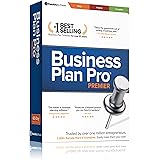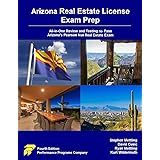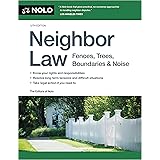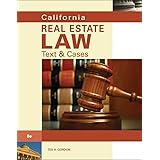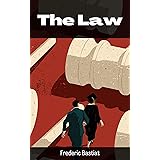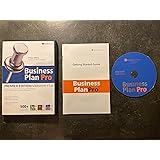Are you an aspiring or experienced real estate agent looking to elevate your sales game and close more deals? The journey to becoming a top-producing agent often involves mastering the art of conversation, where every word can lead to a ‘yes’ or a ‘no’ from a potential client. As highlighted in the insightful video above, confidence in sales is frequently cultivated through preparation, knowing precisely what to say in those crucial moments. This readiness, it is understood, can transform fear into focused action, helping agents navigate complex client interactions with ease and effectiveness.
In the competitive real estate landscape, an agent’s ability to engage prospects meaningfully is a primary determinant of success. Tom Ferry, with his extensive experience spanning over two decades, emphasizes that sales is fundamentally a series of well-crafted questions that guide both the agent and the prospect towards a clear outcome. It is a fundamental truth that a solid repertoire of sales dialogues, often referred to as real estate sales scripts, is not just a crutch but a powerful tool for building rapport, understanding client needs, and ultimately securing new business. Therefore, having a diverse “sales toolbox” of proven scripts is considered indispensable for any agent aiming to thrive.
Building Sales Confidence Through Effective Real Estate Sales Scripts
The core philosophy that “knowledge equals confidence and ignorance equals fear” holds significant weight in real estate sales. When agents are equipped with the right words and questions, they are more inclined to proactively engage with prospects, ask for appointments, and close deals. Conversely, a lack of preparedness often results in hesitation, procrastination, and missed opportunities. By internalizing and practicing effective sales scripts, real estate professionals are empowered to approach every interaction with assuredness, transforming uncertainty into a distinct advantage.
Developing a robust set of sales scripts is not about sounding robotic; rather, it is about understanding the underlying psychology of client communication and adapting proven frameworks to your unique style. These scripts act as navigational guides, ensuring that critical information is gathered, value propositions are clearly communicated, and potential objections are gracefully addressed. With consistent practice, these dialogues become second nature, allowing agents to focus more on listening and less on scrambling for the right words. Ultimately, confidence is built, and better results are achieved.
Unlocking Client Values: The Foundational Real Estate Agent Script
One of the most potent real estate agent scripts focuses on eliciting a client’s core values. The question, “What’s important to you in the agent you choose to represent you?” is a profound inquiry that shifts the focus immediately to the client’s priorities. This approach is invaluable because it moves beyond generic sales pitches and directly taps into what genuinely matters to the individual homeowner or buyer. By understanding their specific desires—whether it’s extensive marketing, frequent communication, securing the highest net proceeds, or a quick sale—agents are given a clear roadmap.
Once these values are articulated, an agent can meticulously tailor their entire presentation and service offering to directly address those stated needs. For example, if a seller expresses a strong desire for “lots of marketing,” the agent’s presentation can prominently feature their extensive digital marketing strategies, professional photography, and open house plans. This custom-fit approach not only demonstrates attentiveness but also builds trust and significantly increases the likelihood of securing the client’s business. It is about aligning your services with their explicit expectations, which is a powerful sales differentiator.
The “Advantage” Script: Creating Opportunities for Discussion
Another highly effective script is designed to secure that crucial initial meeting or a follow-up conversation. The phrasing, “If there was an advantage in time, money, and marketing exposure, would it be worth just 15 minutes of your time for us to get together and learn more about that?” is incredibly persuasive. This question immediately presents a clear benefit, appealing to universal client motivations: saving time, making more money, and achieving broader market reach. It frames the meeting not as a sales pitch, but as an opportunity for the client to gain a tangible advantage.
This script is particularly useful when engaging with prospects who might be considering other agents or are hesitant to commit. By offering a “second opinion” that promises a potential edge, a short 15-minute consultation becomes a low-risk, high-reward proposition for the client. The simplicity and directness of this inquiry are often underestimated, yet it consistently opens doors that might otherwise remain closed. It allows agents to demonstrate their expertise and unique value proposition in a concise and compelling manner, which is often all that is needed to move the conversation forward.
Addressing Unsold Listings: A Compassionate and Strategic Real Estate Dialogue
When a property is not selling, the conversation with a disheartened seller can be delicate. The script, “If the home’s not selling, then it’s not compelling to the buyers in today’s market,” offers a direct yet non-judgmental explanation. This shifts the focus from fault-finding to market reality and problem-solving. It helps sellers understand that the issue lies not necessarily with the home itself, but with its current presentation or positioning in relation to buyer expectations and market conditions.
Agents are encouraged to identify what makes properties “compelling” in their specific local market. This might include “opportunity properties” like a vacant lot zoned for development, a home in a prime location near amenities, or properties with unique features that resonate with a particular buyer demographic. By concluding the discussion with price adjustments, after discussing other compelling factors, agents can mitigate immediate resistance. This approach educates sellers on market dynamics and sets a collaborative tone for adjusting the listing strategy, making it a crucial tool for listing presentations and price reduction conversations.
Generating Leads and Referrals: The Everyday Real Estate Sales Script
For consistent lead generation, a simple yet powerful two-part question can be integrated into everyday conversations. The script, “Have you had any thoughts of selling?” followed by, “Do you know anyone who’s had any thoughts of selling?” is a masterclass in subtlety and effectiveness. This casual inquiry, easily woven into interactions at the coffee shop, grocery store, or social gatherings, keeps agents “listing-focused” without being overtly pushy. It creates an opening for potential business in unexpected places.
Many agents overlook the potential of their existing network and daily interactions for new business. If the first question elicits a “no,” the second question gracefully pivots to referrals, often revealing connections to friends, family, or colleagues who are indeed considering a move. It’s remarkable how often this simple script uncovers immediate leads or future opportunities, demonstrating that consistent, low-pressure outreach can yield significant results. This is a prime example of proactive real estate sales strategies that can significantly impact an agent’s pipeline.
Mastering Pricing Strategies: Guiding Sellers Through Options
During the critical pricing conversation, particularly at a listing appointment, it is typically observed that many agents present only one pricing recommendation. However, offering a choice of three distinct pricing strategies can empower sellers and demonstrate an agent’s strategic acumen. These options include pricing the property: 1) above the comparable sales (the “needle in a haystack” approach), 2) right at fair market value (the common approach), and 3) just below fair market value to create a bidding war (the savvy approach).
Each option comes with its own set of expectations and potential outcomes, which should be clearly explained. For a seller aiming for the highest possible price, option one might be considered, though it often involves a longer market time. Pricing at fair market value is a balanced approach, while pricing just below market value, when combined with robust marketing, can generate intense buyer interest and potentially drive the final sale price above initial expectations. By presenting these clear choices and discussing their implications, agents can guide sellers to make an informed decision that aligns with their goals, enhancing their role as a trusted advisor in real estate selling strategies.


